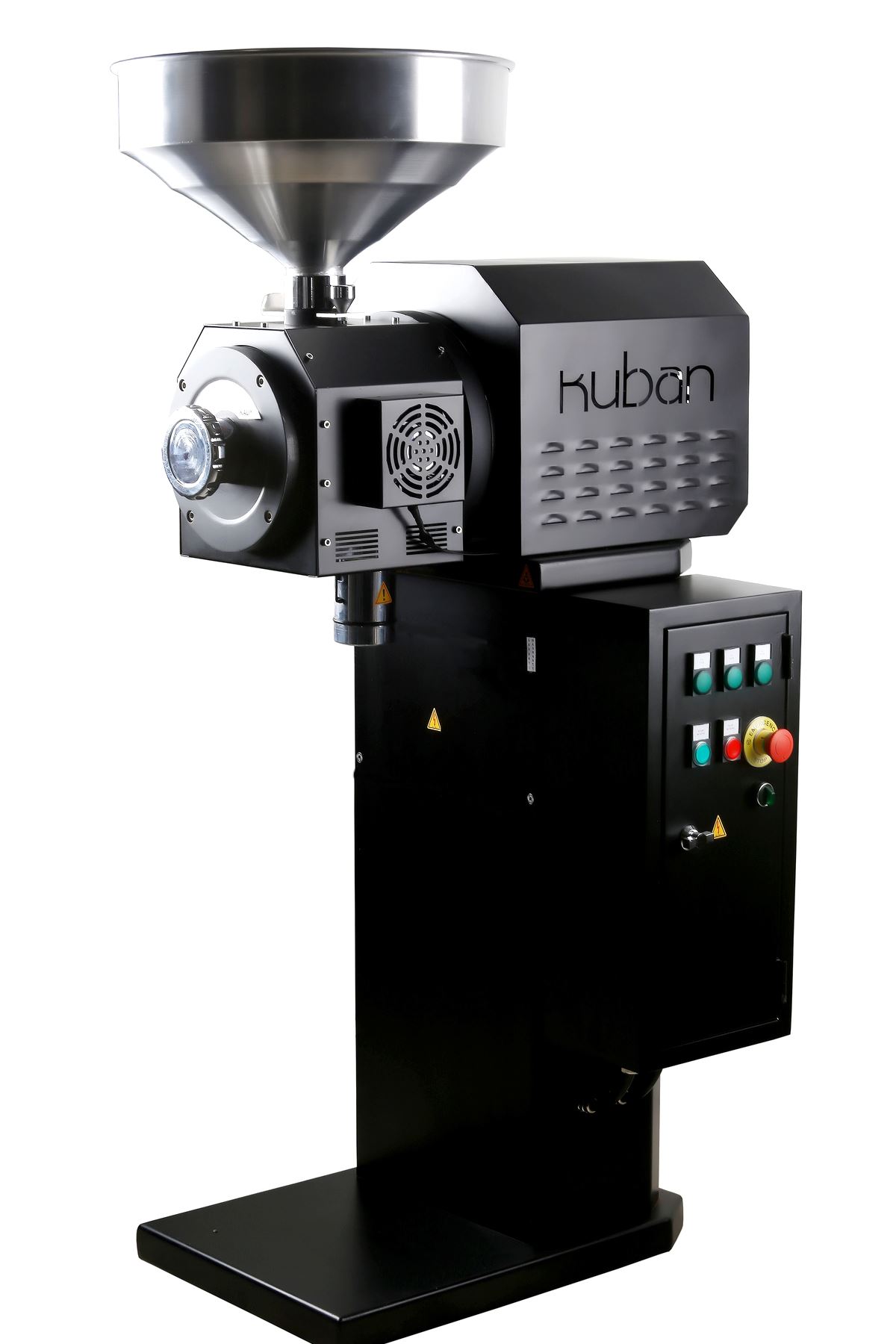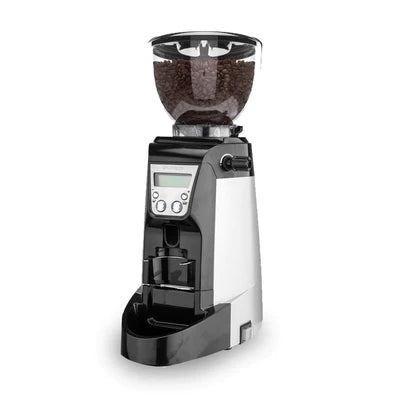How an Industrial Coffee Grinder Can Boost Your Coffee Quality
How an Industrial Coffee Grinder Can Boost Your Coffee Quality
Blog Article
Just How to Pick the Perfect Industrial Coffee Mill for Your Organization
Choosing the optimal commercial coffee grinder for your service is a multifaceted decision that needs careful consideration of several critical aspects. It is necessary to evaluate your details grinding demands, consisting of the volume of coffee refined and the desired work consistency, as these components directly affect taste and client complete satisfaction. Furthermore, recognizing the various kinds of grinders offered can significantly influence your functional efficiency. As you navigate these factors to consider, one must likewise weigh the effects of budget and maintenance. What various other variables could make or break your selection?
Assess Your Grinding Demands
When picking an industrial coffee mill, one should initially analyze their grinding needs to guarantee ideal performance and consistency. This preliminary examination entails recognizing the quantity of coffee to be refined daily, as well as the preferred grind size for different brewing techniques. A high-capacity mill might be essential for businesses offering huge amounts of coffee, while smaller sized operations might find a more small design adequate.
Furthermore, it is vital to think about the types of coffee beans being used, as various beans might require particular grinding techniques to attain the ideal taste profile. As an example, oily beans might require a mill developed to deal with such qualities without clumping or overheating.
Specialized coffee businesses usually demand exact grind sizes to improve removal and taste, making it essential to choose a grinder that can supply uniform outcomes. Assessing the offered space and electrical demands will certainly aid in selecting a mill that fits seamlessly into your operational process.
Understand Mill Kind
Recognizing the different sorts of commercial coffee mills is crucial for making an informed option that meets specific functional requirements. There are largely two groups of mills: blade mills and burr mills.
Blade mills make use of rotating blades to cut the coffee beans, resulting in an irregular work dimension - Industrial Coffee Grinder. While they may be a lot more budget-friendly, they are usually not appropriate for business applications where accuracy is necessary
On the various other hand, burr mills supply an extra uniform grind by squashing the beans in between 2 surfaces. They can be further categorized right into flat burr and conical burr grinders. Apartment burr mills use a constant grind size and are usually favored for espresso preparation, while conical burr grinders are functional and can manage a variety of mixture approaches, from espresso to French press.
When picking a mill, think about the details demands of your company, including desired grind uniformity, manufacturing quantity, and the types of coffee beverages you intend to supply - Industrial Coffee Grinder. Each mill type has its limitations and benefits, so understanding these nuances enables informed decision-making that lines up with functional goals
Evaluate Grind Size Uniformity
Accomplishing work size consistency is crucial for generating premium coffee, as variants in bit size can dramatically influence extraction and taste. When selecting a commercial coffee mill, it is crucial to assess just how well the machine maintains harmony in grind dimension throughout various batches. Inconsistent work dimensions can lead to uneven removal, causing a mug that may taste extremely bitter or weak.
To examine work dimension uniformity, think about grinders with functions such as flexible grind settings and premium burrs. Burr grinders, specifically, master generating consistent particle dimensions contrasted to blade mills. The material and form of the burrs play a vital function, with stainless-steel and ceramic choices offering longevity and accuracy.

Consider Production Capability
In the fast-paced globe of coffee production, thinking about production capacity is vital for organizations aiming to fulfill demand without sacrificing quality. The production ability of a commercial coffee grinder directly affects a business's capability to fulfill orders successfully, handle supply, and react to varying market trends.
When evaluating production capacity, it is important to assess the grinder's outcome rate, generally measured in extra pounds per hour. This dimension ought to align with your business's projected sales quantity and growth targets. A coffee shop with a high turn over may call for a mill that can process several hundred extra pounds daily, while a smaller procedure may suffice with a reduced ability version.
Furthermore, consider the kind of coffee being processed. Various beans and blends may influence grinding speed and efficiency, demanding a grinder efficient in taking care of diverse manufacturing needs. It's additionally worth factoring in the visit their website mill's capability to maintain constant top quality under high outcome problems, as any changes can impact the final product.
Eventually, selecting a mill that matches your organization's manufacturing capacity will guarantee you stay responsive and competitive to customer expectations.

Spending Plan and Upkeep Aspects
When reviewing the best commercial coffee spending plan, grinder and upkeep variables play a significant function in the total decision-making procedure. A first investment in a top quality grinder can produce long-lasting advantages, yet it's important to develop a clear spending plan that lines up with your company's functional needs. Consider both the purchase cost and potential functional expenses, such as energy usage and replacement parts.
Industrial coffee grinders call for normal maintenance to ensure ideal efficiency and long life. Review the supplier's suggestions for maintenance, including cleansing routines and parts replacement, as these will influence long-lasting operational prices.

Buying a grinder that is sturdy yet simple to keep can save money over time. While lower-priced alternatives here are the findings may be alluring, they may sustain higher maintenance prices and decreased efficiency. Ultimately, stabilizing initial expenses with long-term maintenance and functional efficiency will certainly direct you to the ideal choice for your service's coffee grinding needs.
Final Thought
Picking the optimal commercial coffee grinder More Help requires a comprehensive analysis of grinding needs, grinder kinds, grind dimension consistency, production ability, and budgetary considerations. By prioritizing these variables, businesses can guarantee the procurement of a reliable, reliable mill that meets certain operational demands. An appropriate grinder not just boosts the quality of the coffee generated but also contributes to the general success and success of the enterprise. Lasting efficiency and upkeep simplicity ought to continue to be central to the decision-making process.
Specialty coffee businesses usually require exact work sizes to enhance removal and flavor, making it important to select a grinder that can supply consistent outcomes. Flat burr mills provide a consistent work dimension and are commonly preferred for coffee prep work, while conelike burr mills are versatile and can handle a range of mixture approaches, from espresso to French press.
When choosing an industrial coffee mill, it is essential to examine how well the machine preserves uniformity in grind size throughout different batches. Burr mills, in certain, excel in generating uniform bit dimensions contrasted to blade mills.Choosing the ideal commercial coffee grinder requires a comprehensive evaluation of grinding requirements, mill kinds, grind dimension uniformity, manufacturing capacity, and financial factors to consider.
Report this page